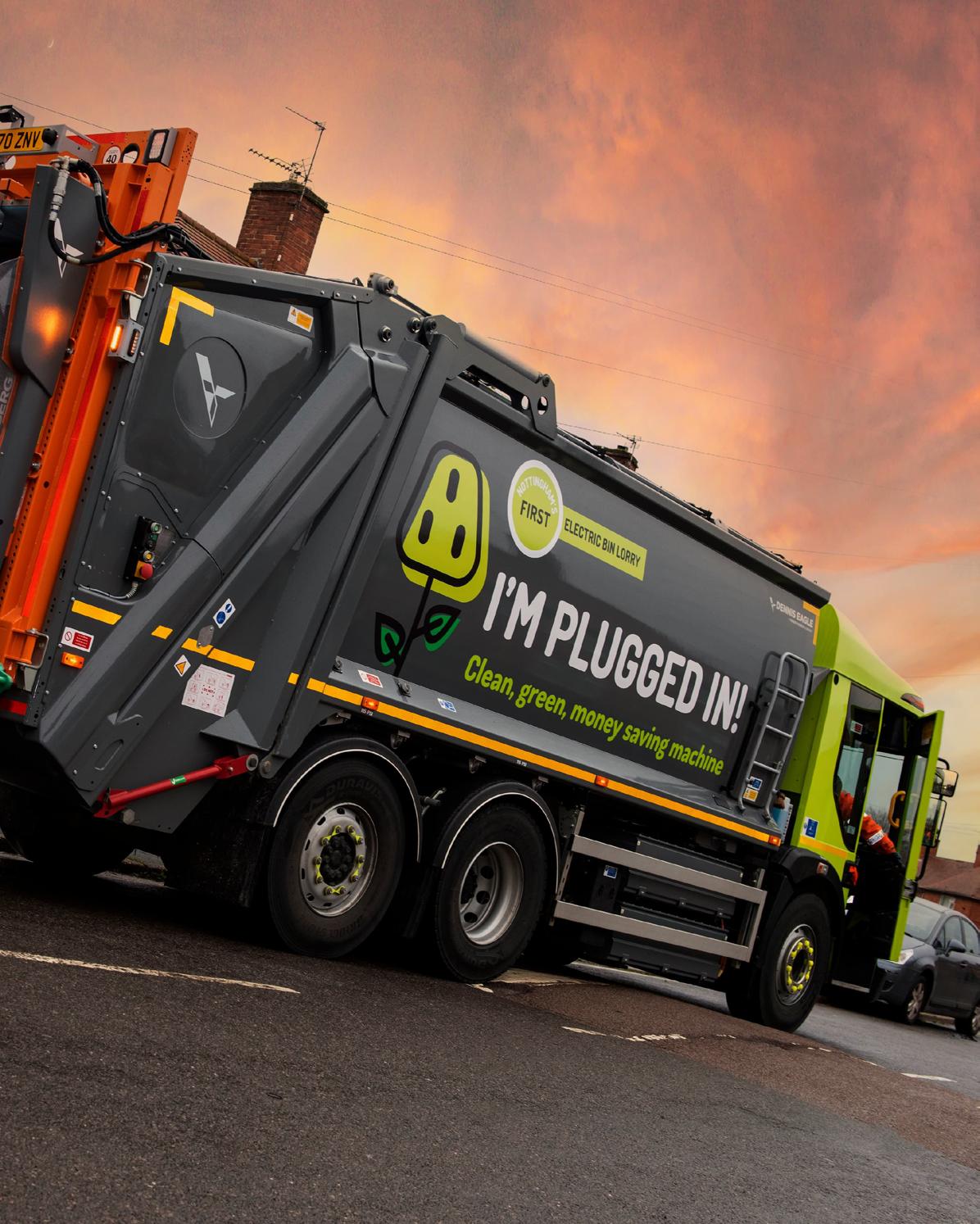
3 minute read
eCollect: A world’s first
The principle behind the eCollect was to provide a genuinely zero-emissions alternative to our best-selling RCV: the 26-tonne diesel-powered Elite chassis with a 19m³ Olympus body and Terberg OmniDEL lift.
This meant it had to be at least as efficient, safe and cost-effective over the course of its lifetime.
After extensive discussions with operators, we knew this was the vehicle our customers most wanted. We also understood that this configuration would be the easiest to test operationally, provide the most data for analysis and consequently, it presented the best base from which to develop other models.
Thoroughly tested before launch
As an OEM it was never our intention to rush to the market. Our products must always meet the exacting standards of our brand and to do so, require exhaustive testing. The eCollect was no exception.
We built five test vehicles that underwent more than 180 validation activities, driving more than 450,000km in the process – that is further than a journey to the Moon.
This not only took considerable time but also required significant investment, the likes of which most other specialist vehicle manufacturers would not engage in. Of course, it also initially added to the carbon footprint of both the eCollect and Dennis Eagle Ltd.
In the long term, however, it made the eCollect more efficient, more robust and more reliable. This has significantly improved the sustainability of the vehicle in comparison with eRCVs that have not undergone such rigerous tests.

Market leading eRCV
By the end of 2022 – two years since the first customer order was fulfilled – almost 100 eCollects had gone into service with customers in the UK and Ireland. This accounts for more than half of all eRCVs working in the UK and Ireland at this time.
In the summer of 2022, the second iteration of the eCollect was made available to customers in the UK and Ireland: a 4x2 eCollect with five-tonne payload.
Again, this involved minimal changes from the 18-tonne diesel model and was essentially a smaller version of the original eCollect.
The configuration was, again, made in close consultation with our customers. Air quality was high among their priorities and they wanted a nimble eRCV with a smaller footprint that could operate efficiently on narrow, cluttered urban roads and back streets. These locations suffer from some of the poorest air quality in the UK.
We have also developed a bespoke repowered eCollect programme. In this, a conventional RCV operating on diesel is removed from service and all the diesel components are stripped out and replaced with the eCollect electrical drivetrain, battery packs and cab. The body, much of the chassis and often the lifts remain the same.
This is an efficient way of converting a significant asset that a customer needs to replace with an emissions-free vehicle quickly, cost-effectively and with full environmental sensitivity. The diesel parts are also recycled, either as quality used parts or in our DE Used Approved vehicles where possible.
Sharing HV safety standards with industry
A key aspect of all our products is that we fully support them. Our Aftermarket network is by far the largest in the UK with an unrivalled numeric and geographic spread and a reputation for industry-leading customer service.
The development of the revolutionary eCollect vehicle was mirrored by the development of our Aftermarket support for it.
Working with high voltage (HV) systems presented new challenges for the industry and required a new approach. When the Health and Safety Executive firmly placed the onus to develop best practices on each industry, as the forerunners in our industry, we took it upon ourselves to do so.
We developed a strict set of workshop rules and procedures and introduced appropriate safety equipment. And all staff and visitors to our premises where electric vehicles may be present either in construction, operation or repair and maintenance are now provided with safety instructions.
These guidelines remain freely available to customers, competitors and anyone else in our industry.
Meanwhile, our skilled engineers have been fully trained to provide expertise in the service, maintenance and repair of electric vehicles that few of our customers could provide.
In doing so, we have made sure this vital aspect of waste management operations presents no barrier to operators wishing to decarbonise their fleet.
And we have also remained true to our declaration that the eCollect will be at least as cost-effective as its diesel forebears.











